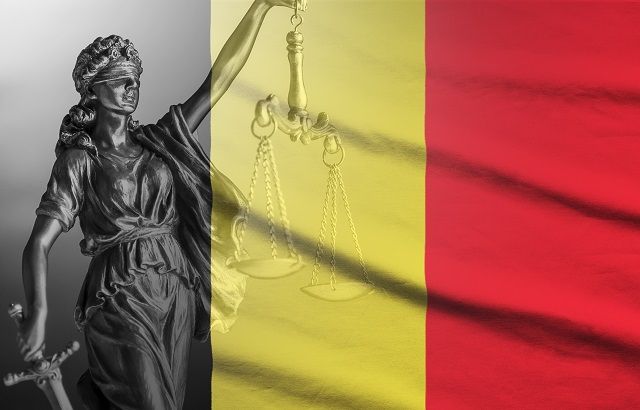The latest turn in a long-running fraud investigation in Belgium has seen the conviction of Levi Dewaegenaere, a former tennis pro and director of property developer Urban Capital Group (UCG).
No stranger to the courts, Dewaegenaere was handed (and appealed) a 10-month suspended sentence in 2018 for the forgery of two sales invoices relating to his healthcare business Waegener R&D, which entered bankruptcy in 2012.
According to an update from the board of directors of LFP I Sicav, dated 30 June 2020, he has now been sentenced to 30 months – half suspended.
The latest judgement against Dewaegenaere relates to a case brought by an unnamed technology group that invested in another entity he owned; described as a “forerunner” to WAE Newco, which entered bankruptcy in March 2020.
The case is not directly linked to LFP I sub-fund Equity Power Fund, but the board of directors believes that the actions taken by Dewaegenaere that led to this conviction were similar to his dealings with EPF.
The fund
The 42-year old Belgian is one of eight people accused of forgery, fraud, abuse of trust, corruption and money laundering in relation to EPF.
A sub-fund of alternative inverment fund manager (AIFM) Luxembourg Fund Partners (LFP I), EPF was launched in June 2013 and is focused on short-term loan agreements and equity holdings.
WAE Newco received loans and preferred share subscriptions of almost €5m from the fund.
UCG was 99.4% owned by the EPF, and most of the Equity Power Fund’s assets were invested in UCG real estate projects, aside from WAE Newco.
To date, no repayment of the principal amount or the interests of these investments have been accounted for, Expert Investor understands.
Real estate projects
Investigators claim the majority of the fund’s real estate projects were sold or transferred out without the fund receiving any proceeds.
Of the 16 UCG real estate projects that were included in the Equity Power Fund’s portfolio – 11 were transferred out of the fund or never bought in the first place – with none of the money being returned to investors.
EPF also paid artificially high prices for assets; including the Tour & Taxis redevelopment in Brussels and the Seascape project in Antwerp.
The fund paid €5.3m for the Tour & Taxis project, with the real price of the building just over €3m; and paid €20m for Seascape, when the real value of the project was only €7m, according to court documents.
It was only when EPF was refused a breakdown of disbursements from the Belgian notary that suspicions were raised, sellers contacted directly, and false loan agreements and valuation mark-ups were discovered.
Tangled web
EPF is not the only LFP sub-fund to get into difficulties, however, with Columna Commodities collapsing in February 2017.
LFP itself went into liquidation in 2017 and was acquired by fund platform and administrator Alter Domus in December of that year.
The fund collapses saw Switzerland-based financial investigator David Mapley of Intel Suisse successfully put himself forward to become director of LFP I in September 2018.
He is seeking to recoup around €35m in assets and cash from EPF and about €55m from Columna, plus two other funds.
In May 2020, however, Mapley was suspended from his duties by the Luxembourg regulator, which stated that he “no longer satifies the requirement of good repute”.
Mapley announced shortly afterwards that he would appeal the decision through the administrative court.
Questions needed asking
Mapley believes that what was going on at EPF should have been spotted as a Ponzi scheme much earlier, but there was little in the way of vigilance to prevent the fraud continuing.
“Alter Domus ran the fund for 14 months while [ex-adviser and fundraiser Hans] Noomen was still acting as fund adviser.
“Despite stating their expertise in real estate investments, they consistently failed to check land registry records – the titles and ownership of the assets and couldn’t even visit next-door Belgium to ‘kick the tyres’ on these investments,” he told Expert Investor.
“It was clearly a Ponzi scheme but nobody asked enough questions.”
He added: “In the past, the regulator (CSSF) complained of nine sub-funds of the umbrella fund LFP I, stating seven of them were in breach of diversification rules and the others simply didn’t comply with their investment guidelines.”
Checkered history
As well his connection to the EPF case, Noomen was also the brains behind the marketing of the Terra Vitalis teak fund which raised nearly €130m from Dutch and international investors from 2000 until 2008.
The fund was set up to invest money in Costa Rican teak plantations however, court judgements found that, in reality, at least €70m of this money was not used to plant trees but spent on advertisements, a large sales platform, car race sponsorship, a private box at Ajax FC and other exorbitant expenses run by Noomen’s sales company, People Buy More Green.
Neither Dewaegenaere nor his wife Inge Caes (an ex-KPMG auditor) had any involvement in either Columna or Terra Vitalis but all three were central to the investigation in relation to EPF.
Intel Suisse continues to investigate the trio and their associates, but so far only Dewaegenaere has been handed a custodial sentence.
Expert Investor contacted Alter Domus, Caes and Nooman but so far they have not responded.
The process of recovering money for investors continues to prove a challenge, as Mapley explains: “We have preserved approximately €20m of EPF money and own two overvalued properties.”
In late 2017, LFP I Sicav’s assets under management totalled around €400m.
Mapley added: “We have been able to secure bank records in Belgium but with payments made to accounts in places like Bahrain, recouping money is not easy.”







